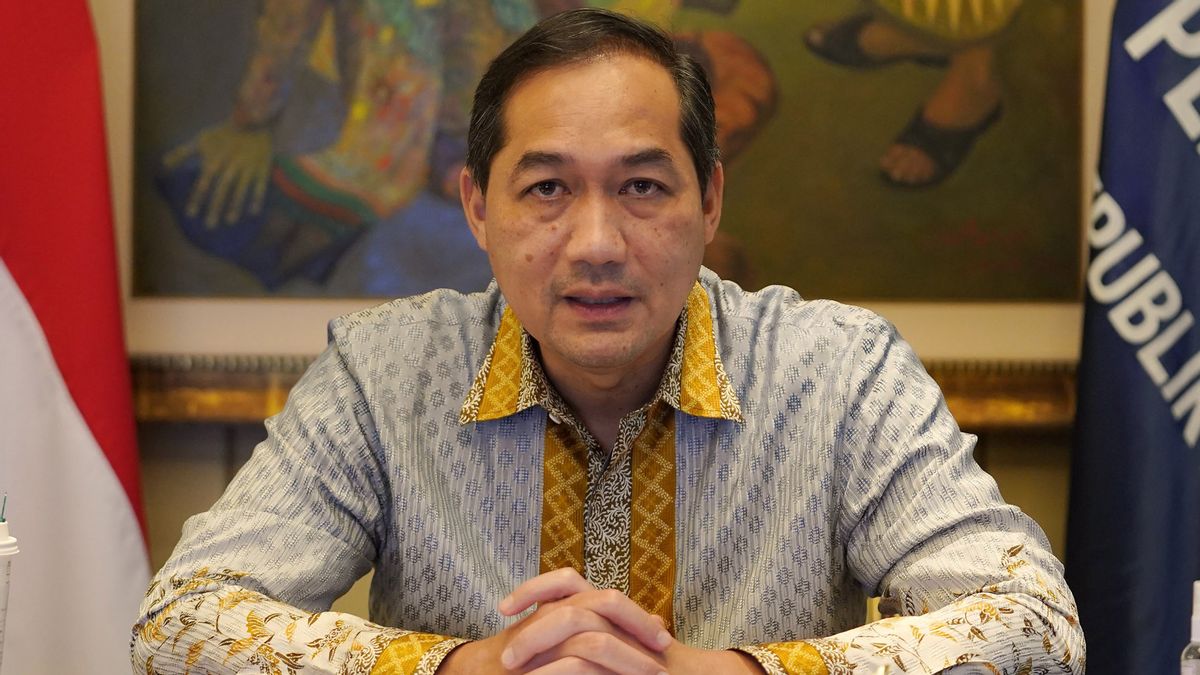JAKARTA - The Minister of Trade (Mendag) Muhammad Lutfi revealed two main keys for Indonesia to be able to get out of the middle-income trap or middle-class trap to go to developed countries. One of them is an investment.
"Why does President Jokowi's administration in the second term always promote investment in infrastructure? Because that's one of the requirements for us to get out of the middle-income trap", said Trade Minister Lutfi at an online Rakernas HIPMI 2021 event, Friday, March 5.
Lutfi said, referring to the Gross Fixed Capital Formation (PMTB) which is one of the components of the Gross Regional Domestic Product (PDRB) and represents the amount of investment. In 2018 the contribution of PMTB to Indonesia's GDP structure was 34 percent. However, by 2020 it fell to 31 percent.
In fact, said Lutfi, to make Indonesia's economy grow high, the investment must contribute around 39 percent to 40 percent with a trajectory growth of 7.3 percent per year.
"What does that mean? It means that we cannot differentiate between local and international investment. Even local and international cannot be distinguished, let alone investment that comes from one country to another", he explained.
Because of that, he said, the government is aggressively inviting investors to invest in the country. One of them is the presence of the Job Creation Law which makes investing easier.
"This is important, that for Indonesia to advance the field will be open, the investment. Therefore we have to compete, not between provinces and one entrepreneur, but we must compete as world-class. This is what we must do", he said.
Lutfi said the second key in manufacturing, in this case, comes from trade. Lutfi said that manufacturers finally presented excellent non-oil and gas products for export. Moreover, the contribution of manufacturing to GDP last year was around 22 percent.
However, said Lutfi, to become a developed country, the contribution of the Indonesian manufacturing sector must increase to 32 percent with a trajectory growth of 7.8 percent per year. Meanwhile, Indonesia's exports and imports, which last year were only around 33 percent to 34 percent, must be pushed to 54 percent.
Currently, according to Lutfi, Indonesia's economy is supported by consumption, including spending on lifestyle. He said, 59 percent of the contribution to GDP came from consumption.
"For our export and import to be high, we must open up the market so we can sell more. We can't just sell but don't want to buy, because we are part of the global value chain. So we have to compete, not between us, but also with other international economic actors", he said.
Furthermore, Lutfi said, if Indonesia could not graduate to become a developed country in the next 17-18 years then Indonesia would be stuck in the middle-income class.
The English, Chinese, Japanese, Arabic, and French versions are automatically generated by the AI. So there may still be inaccuracies in translating, please always see Indonesian as our main language. (system supported by DigitalSiber.id)












